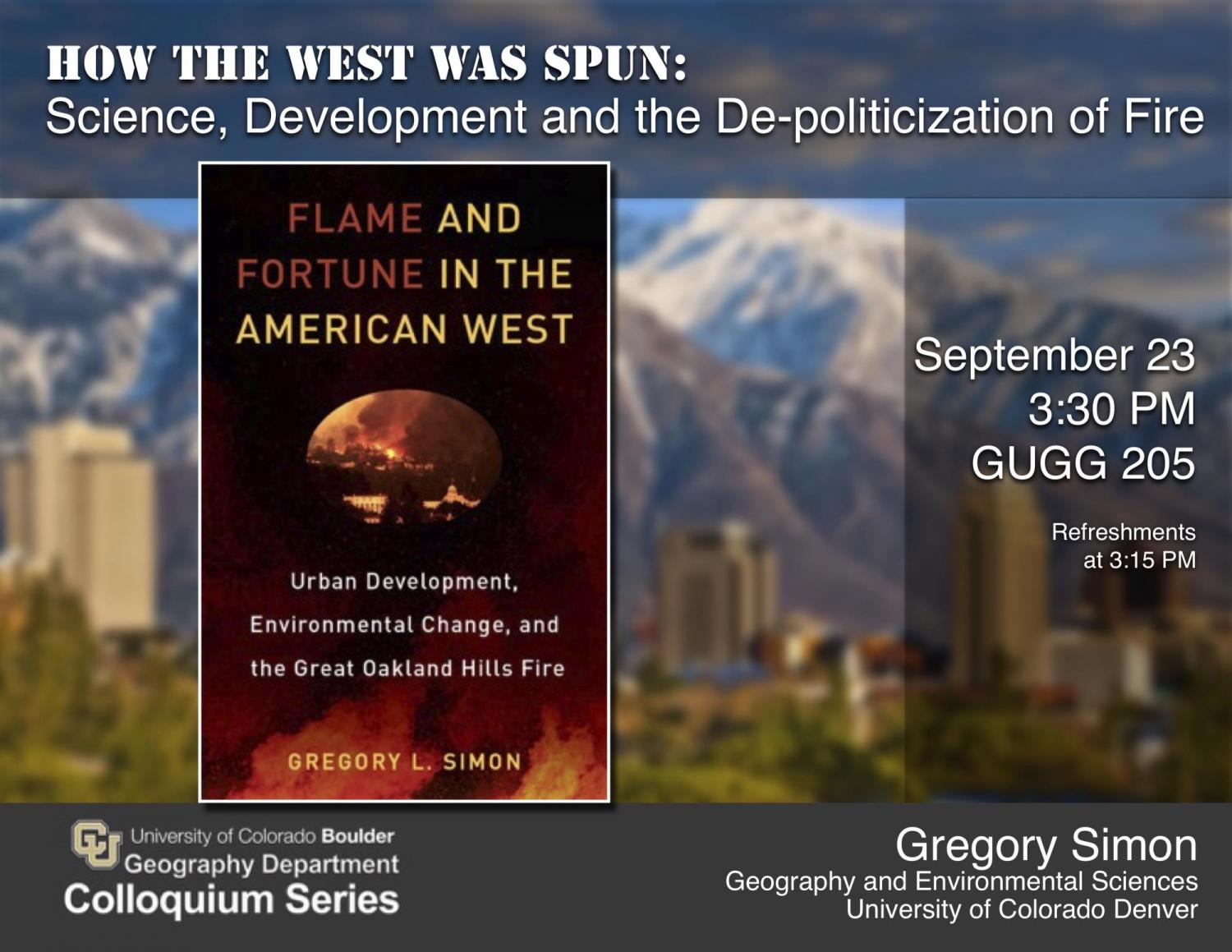How the West was Spun: Science, Development and the De-politicization of Fire
Abstract: Diverse actors in the American West extract profits and surplus value from fire-prone areas at the urban periphery while inserting considerable social risks and costs back onto the landscape. To better excavate and highlight these drivers of increased wildfire risk (a process labeled ‘the Incendiary’) I suggest a shift from the study of wildland-urban interface areas to the study of affluence-vulnerability interface processes. I argue that making this shift is particularly important because reckless resource management and planning practices are frequently de-politicized and obscured behind a series of mainstream scientific framings and contested policy debates. Through this discursive process, suburban areas and their injurious and costly wildfires are “spun” as strangely natural and inevitable. Meanwhile, a second process of re-politicization supports the de-politicization process by filling the debate arena with other distracting ideological disputes and micro-scale controversies.
Bio: Gregory Simon is Associate Professor of Geography and Environmental Sciences at the University of Colorado Denver and is a graduate faculty member at CU Boulder. He is author of the book Flame and Fortune in the American West (University of California Press) and also a coeditor of Cities, Nature, and Development: The Politics and Production of Urban Vulnerabilities. Along with his work in the US West, Gregory has worked extensively researching sustainable development programs in India. In this capacity, he has been a core advisor to the United Nations Foundation and recently received a National Science Foundation grant to examine the influence of carbon finance on rural household energy development programs in southern India. He has served as a postdoctoral fellow and visiting scholar at Stanford University and is currently a visiting researcher at UCLA where he is working on his next book titled PoliticalNature.


